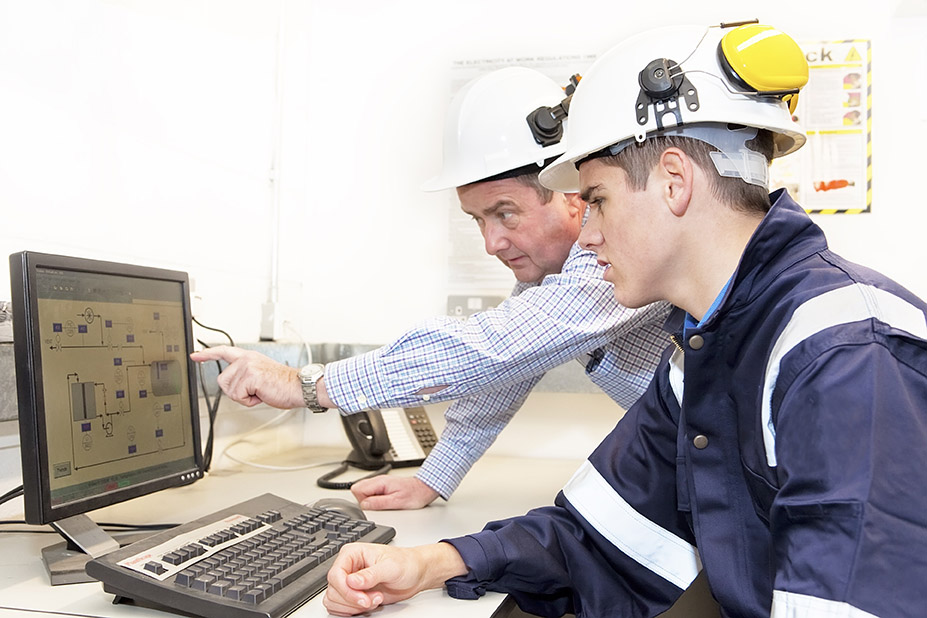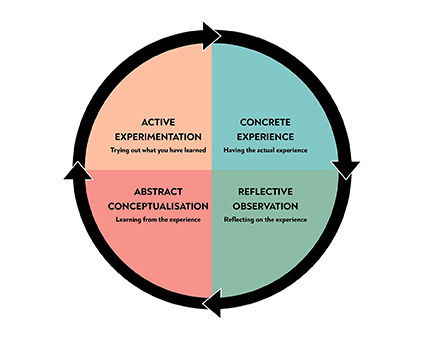Employability Edge Maximise Course-Relevant Experience Track And Reflect
Track And Reflect
- Future Students
- JCU Global Experience
- International Students
- Open Day
- How to apply
- Pathways to university
- Virtual Open Day
- Living on Campus
- Courses
- Publications
- Scholarships
- Parents and Partners
- JCU Heroes Programs
- Aboriginal and Torres Strait Islander in Marine Science
- Elite Athletes
- Defence
- Current Students
- New students
- JCU Orientation
- LearnJCU
- Placements
- CEE
- Unicare Centre and Unicampus Kids
- Graduation
- Off-Campus Students
- JCU Job Ready
- Safety and Wellbeing
- JCU Prizes
- Professional Experience Placement
- Employability Edge
- Art of Academic Writing
- Art of Academic Editing
- Careers and Employability
- Student Equity and Wellbeing
- Career Ready Plan
- Careers at JCU
- Partners and Community
- JCU-CSIRO Partnership
- Alumni
- About JCU
- Reputation and Experience
- Chancellery
- Governance
- Celebrating 50 Years
- Academy
- Indigenous Engagement
- Education Division
- Graduate Research School
- Research and Teaching
- Research Division
- Research and Innovation Services
- CASE
- College of Business, Law and Governance
- College of Healthcare Sciences
- College of Medicine and Dentistry
- College of Science and Engineering
- CPHMVS
- Anthropological Laboratory for Tropical Audiovisual Research (ALTAR)
- Anton Breinl Research Centre
- Agriculture Technology and Adoption Centre (AgTAC)
- Advanced Analytical Centre
- AMHHEC
- Aquaculture Solutions
- AusAsian Mental Health Research Group
- ARCSTA
- Area 61
- Lions Marine Research Trust
- Australian Tropical Herbarium
- Australian Quantum & Classical Transport Physics Group
- Boating and Diving
- Clinical Psychedelic Research Lab
- Centre for Tropical Biosecurity
- Centre for Tropical Bioinformatics and Molecular Biology
- CITBA
- CMT
- Centre for Disaster Solutions
- CSTFA
- Cyclone Testing Station
- The Centre for Disaster Studies
- Daintree Rainforest Observatory
- Fletcherview
- JCU Eduquarium
- JCU Turtle Health Research
- Language and Culture Research Centre
- MARF
- Orpheus
- TESS
- JCU Ideas Lab
- TARL
- eResearch
- Indigenous Education and Research Centre
- Estate
- Work Health and Safety
- Staff
- Discover Nature at JCU
- Cyber Security Hub
- Association of Australian University Secretaries
- Services and Resources Division
- Environmental Research Complex [ERC]
- Foundation for Australian Literary Studies
- Gender Equity Action and Research
- Give to JCU
- Indigenous Legal Needs Project
- Inherent Requirements
- IsoTropics Geochemistry Lab
- IT Services
- JCU Webinars
- JCU Events
- JCU Motorsports
- JCU Sport
- Library
- Mabo Decision: 30 years on
- Marine Geophysics Laboratory
- Office of the Vice Chancellor and President
- Outstanding Alumni
- Pharmacy Full Scope
- Planning for your future
- Policy
- PAHL
- Queensland Research Centre for Peripheral Vascular Disease
- Rapid Assessment Unit
- RDIM
- Researcher Development Portal
- Roderick Centre for Australian Literature and Creative Writing
- Contextual Science for Tropical Coastal Ecosystems
- State of the Tropics
- Strategic Procurement
- Student profiles
- SWIRLnet
- TREAD
- TropEco for Staff and Students
- TQ Maths Hub
- TUDLab
- VAVS Home
- WHOCC for Vector-borne & NTDs
- Media
- Copyright and Terms of Use
- Australian Institute of Tropical Health & Medicine
- Pay review
Ask for feedback
Feedback helps you improve and grow professionally and personally, and can happen informally during casual conversations, or formally through meetings. Feedback will help you to identify your strengths and weaknesses and will give you time to improve before graduation. It also shows your employer that you are willing and eager to do your job well, and improve yourself.
Ask for suggestions on what else you can do to create a better outcome as you tackle challenges. Ask specific questions to a wide range of people and don’t solely rely on your Manager – ask other colleagues and friends to give you their perspectives on your performance.

Receiving feedback
When receiving feedback, whether positive or negative, actively listen without judgement or getting defensive. Be respectful of the person that is giving you the feedback, even if you disagree with their opinion or firmly believe their option/suggestion is incorrect. Think about how you can use this feedback, and what it has taught you about yourself. Ask questions if you need further clarification. You don’t need to solve a problem or have the right answer at the time of receiving feedback, it’s ok to go away and reflect on the feedback you received.
Dealing with negative feedback
The best way to receive negative feedback is to ask a few basic questions to show that you are genuinely interested in resolving any perceived problems. Listen and actually hear what’s being said; don’t get defensive and start making excuses.

Assume good intentions
Try not to make the automatic assumption that the person criticising you is ‘out to get you’. Good, constructive criticism should always be specific and focus on tasks or behaviours, and should never be perceived as personal criticism.
Clarify expectations
Use negative feedback as a chance to clarify expectations and goals. If you did not understand what you were supposed to do, use this as an opportunity to make appropriate improvements.
Own it and hone it
Accept the feedback and create a plan to make any necessary changes.
Deepen relationships
Use negative feedback as an opportunity to develop your relationship with your manager and co-workers. Their job is to help you develop, while yours is to deliver results. This is your chance to understand your boss and learn what they value most in their employees.
Self-reflection
Use the negative feedback to reflect on all the ways in which you can improve – skills, knowledge, attitude and behaviour.
Recognise its worth
All constructive feedback is a sign of interest in you and what you are doing. It would be far worse to be doing the wrong thing and not have anyone bother to say anything.
Build an ePortfolio to track your experience
Taking notes during your work experience is very important for your reflection and overall development. You can build on the notes you took by adding examples of your work and create your own ePortfolio.
An ePortfolio is simply a way to digitally organise your relevant experiences, skills, documents, and reflections in a way that is easy to access. JCU offers PebblePad, which is an ePortfolio tool that provides additional benefits for searching and storing experiences, including use of tags for easy searching.
Building an ePortfolio is about building self-understanding. By developing your capacity for reflective practice, you can come to understand your own learning as a student, your growth as a person, and your development as a professional. This is a good practice to develop at university as many professional memberships and registrations involve ‘continued professional development’ processes that require you to manage your own learning as a professional.
Benefits of using an ePortfolio
- Summarise skill development and identify areas that need to be developed
- Store reflections and examples to demonstrate your skills and abilities for job applications and interview preparation
- Select suitable evidence from your ePortfolio collection to meet a range of purposes, such as job applications, LinkedIn profile, promotions, awards, scholarships, voluntary or community work, and funding grants.

Reflect on your experience
Take some time to review and reflect on your experiences, your skill development and what you have observed in the workplace. This includes what has been learnt, not just what has been done. Aim to make reflection a deliberate and regular activity.
The process of active reflection helps you to:
- Recognise the variety, depth and ongoing development of your knowledge and abilities
- Increase your confidence in yourself as an emerging professional
- Identify skill areas in need of improvement.
In the diagram below, experiential learning theorist, David Kolb, explains how learning occurs through experience. Kolb’s experiential learning style theory is typically represented by a four stage learning cycle in which the learner ‘touches all the bases’:

Source: Simply Psychology.org
The following reflection questions may help you process your work experience:
- What were your goals and expectations before you started?
- What knowledge of your field was most important?
- In what ways were you able to apply what you have learned in your academic coursework to your internship, and vice versa?
- What skills did you develop and which would you like to further develop?
- What was the biggest challenge you encountered?
- What new ideas or questions were raised as a result of this experience?
- What was the most important thing you learned about yourself?
- What was your greatest accomplishment?
- In light of this internship experience, how have your personal goals evolved?
Action: Go to your downloaded workbook and complete Activity 3
Articulate your experience
Communication is one of the most important professional skills you can develop. As you reflect on your internship, practice speaking clearly and concisely about your experience. You should be able to describe your work experience in less than two minutes using action-oriented, positive words.
How to describe your experience
- Who are you, what you are studying, what organisation was your experience with, and briefly describe what they do (in one or two sentences)
- Describe your main responsibilities, the skills you developed, and a major achievement from your experience
- Describe what the key takeaways were, and what you would like to achieve following this experience.

Write about your experience
Your work experience is a stepping-stone to your next professional experience, so you must be able to articulate what you have learned during your experience in your job application.
- Practice writing about what you did, including details about tasks, skills, and workplace equipment and software utilised.
- Read over your job description to find keywords that describe your experience.
- Reflect on what your challenges and accomplishments were, and consider what impact your work had on the organisation’s efficiency.
This will help you to write qualifiable and quantifiable key points in your resume and cover letter to describe your tasks, skills, and achievements. When you practice writing your examples, follow the STARL model to create your response. You will find information on how to do this in the JCU Employability Edge module: Master Written Applications – Successful Written Communication.
Additional Resources
![]()
To view this video, login to LinkedIn Learning through the JCU website and then search for ‘Giving and Receiving Feedback Virtually'.